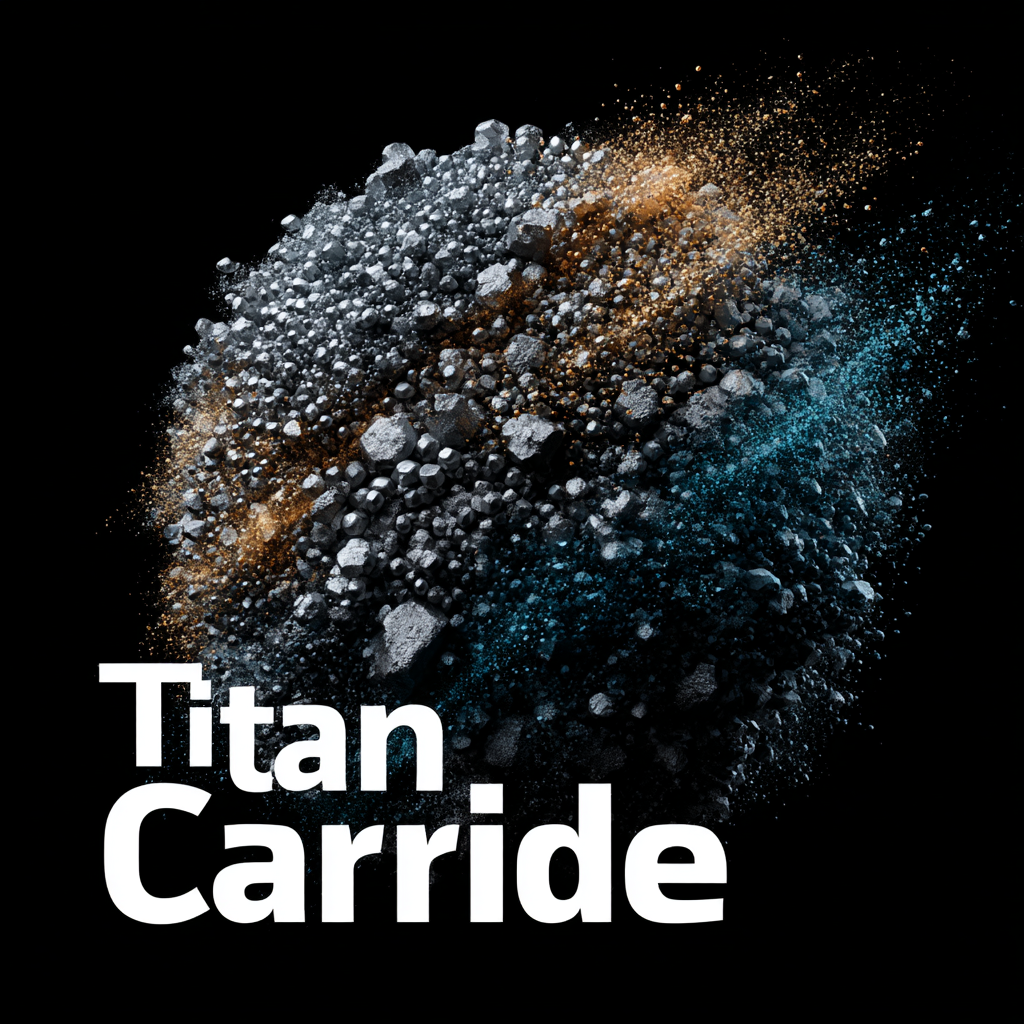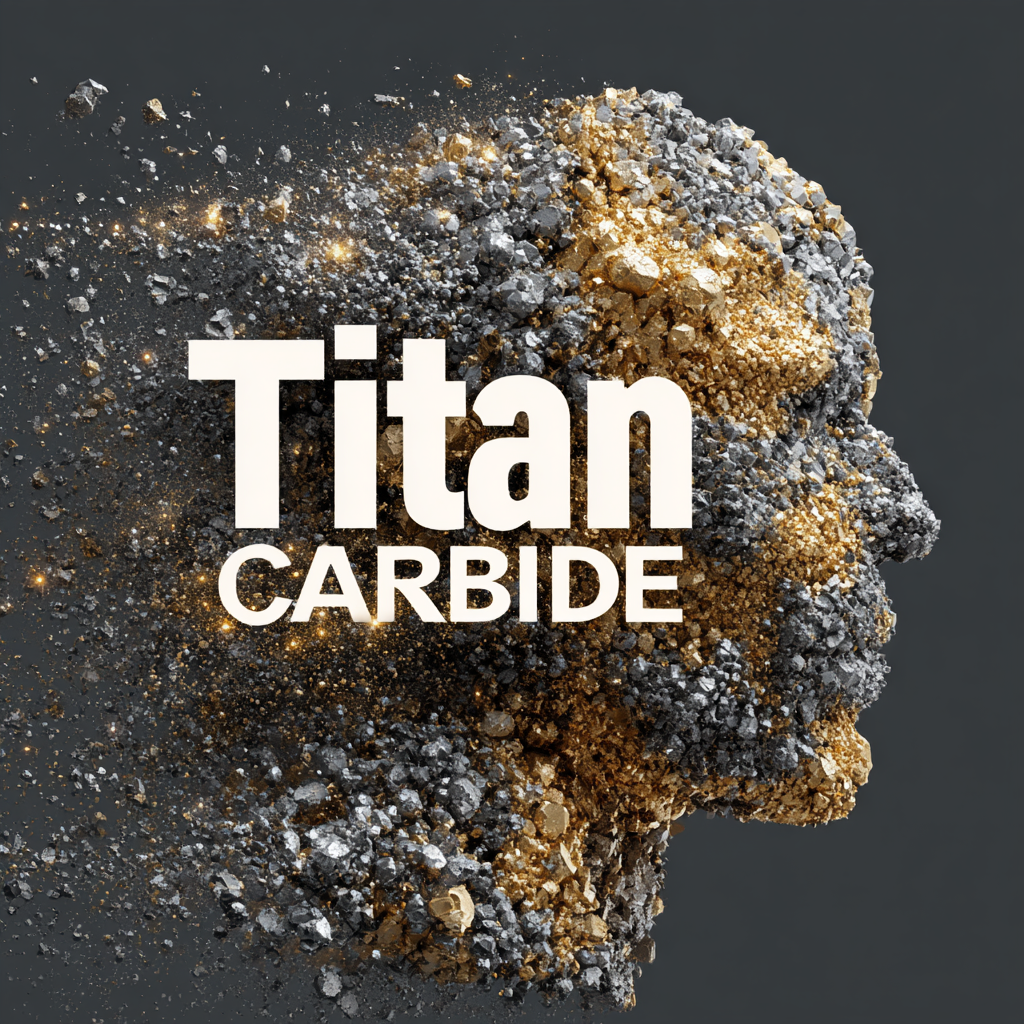Leave your message now to get your free sample and discount price
Leave your message now to get your free sample and discount price
The demand for advanced materials such as Titan Carbide is rapidly increasing across various sectors, driven by industries seeking enhanced durability and performance. According to a recent report by MarketsandMarkets, the global carbide market is projected to reach USD 20 billion by 2025, reflecting a compound annual growth rate (CAGR) of 6.5%. This surge is largely attributed to the unique properties of Titan Carbide, which include exceptional hardness and wear resistance, making it an ideal choice for cutting tools and other high-performance applications.

As industries continue to evolve, global buyers must understand the advantages that Titan Carbide presents, not only in terms of product longevity but also in reducing costs associated with frequent replacements. The future of manufacturing and construction is undoubtedly leaning towards materials that provide both efficiency and resilience, solidifying Titan Carbide's role as a pivotal component in achieving these goals.
Titan carbide is emerging as a crucial material for various manufacturing applications, thanks to its unique properties that enhance tool performance and durability. According to a report by Market Research Future, the global carbide tools market is expected to grow at a CAGR of over 5% from 2020 to 2027, driven largely by advancements in materials like titan carbide. This compound offers superior hardness and wear resistance, making it ideal for industries that require precision machining and high-performance cutting tools.
One of the most significant benefits of titan carbide is its ability to withstand extreme temperatures and corrosive environments. A study published in the Journal of Materials Processing Technology highlights that tools made from titan carbide can outlast traditional carbide tools by up to 30%, significantly reducing downtime and maintenance costs for manufacturers. The reduced wear translates to lower replacement rates for tooling, which is critical in industries such as aerospace and automotive where precision is paramount. As global buyers look to optimize their manufacturing processes, the adoption of titan carbide is not just an option but a strategic move towards increased efficiency and productivity.

Titan carbide has emerged as a favored material for various industrial applications, primarily due to its impressive hardness and wear resistance. According to a report by the Global Market Insights, the global carbide market is projected to reach USD 21 billion by 2027, indicating a robust demand for materials like titan carbide. Its unique properties make it an ideal choice for cutting tools, mining, and manufacturing sectors, marking it as a strategic investment for global buyers looking to enhance their production efficiency.

One of the key features attracting buyers is titan carbide's ability to withstand extreme temperatures and pressures, which significantly extends the lifespan of tools and components crafted from this durable material. Research from the Materials Science Journal highlights that tools made from titan carbide can outperform traditional carbide by up to 40% in terms of life cycle. Additionally, its chemical stability ensures that these tools maintain their integrity under various operational conditions, making them versatile for different industrial applications across the globe. As industries continue to strive for enhanced performance and cost-effectiveness, titan carbide stands out as a vital asset in their supply chain.
The comparative analysis of titan carbide against other materials, such as silicon carbide and tungsten carbide, reveals several significant advantages for global buyers. Titan carbide is known for its exceptional hardness and wear resistance, making it a preferred choice in applications requiring robust performance. Unlike silicon carbide, which has been widely utilized in various composite forms, titan carbide offers enhanced durability and chemical resistance, particularly in harsh environments. This makes it particularly advantageous for tooling and industrial applications where longevity and reliability are critical.
Moreover, recent studies on tungsten carbide highlight its advantages as well; however, when comparing the two, titan carbide often shows superior tribological performance, which is essential in reducing friction and wear in heavy-duty applications. For instance, the integration of titan carbide in metal matrix composites can significantly enhance mechanical properties without compromising weight. As industries increasingly seek materials that can withstand challenging conditions while maintaining efficiency, titan carbide stands out as an optimal choice for global buyers looking to invest in high-performance materials.
When sourcing Titan Carbide, several critical factors must be considered to ensure that buyers make informed decisions. First and foremost, the purity of the material plays a pivotal role in determining its performance and longevity in industrial applications. According to the International Journal of Refractory Metals and Hard Materials, high-purity Titan Carbide demonstrates superior hardness and wear resistance, with hardness values exceeding 2800 HV. This makes it ideal for applications that require wear-resistant tools and components, especially in the metal-cutting and mining industries.
Another important consideration is the supplier's reputation and manufacturing capabilities. Reliable suppliers usually adhere to industry standards such as ISO 9001, which guarantees that their processes consistently produce high-quality materials. Additionally, recent market analyses indicate that suppliers with advanced manufacturing techniques and a focus on sustainable sourcing are more likely to deliver cost-effective solutions without compromising quality. As reported by the Global Carbide Market Research, the growing demand for Titan Carbide driven by the automotive and aerospace sectors is steadily influencing suppliers to innovate and improve their product offerings. Therefore, buyers should conduct thorough due diligence, assessing both material quality and supplier credibility.
Integrating Titan Carbide into production processes can significantly enhance efficiency and product quality. This advanced wear-resistant material is ideal for industries where durability is crucial. When incorporating Titan Carbide, it's vital to evaluate the specific needs of your production line. By tailoring the integration process, you ensure maximized performance and cost-effectiveness.
**Tip:** Start with a thorough assessment of your current materials and processes. Identify the areas most in need of improvement, such as equipment wear and tear or product failures, to determine where Titan Carbide can be most beneficial.
Additionally, training your workforce on the characteristics and handling of Titan Carbide is essential. Proper education will help them understand the advantages it offers, leading to smoother transitions and better implementation of new practices.
**Tip:** Consider creating workshops or training sessions to familiarize employees with Titan Carbide’s properties and maintenance requirements. Encouraging hands-on experience can significantly boost confidence and effectiveness in using this material.
| Dimension | Description | Benefit | Best Practices |
|---|---|---|---|
| Durability | Titan carbide offers exceptional hardness and wear resistance. | Reduces maintenance costs and extends tool life. | Regularly inspect wear patterns and adjust tool paths accordingly. |
| Heat Resistance | Resists deformation under high temperatures. | Improves operational efficiency and reliability. | Implement cooling strategies to maximize efficiency. |
| Versatility | Can be used in various cutting and machining applications. | Adapts to diverse manufacturing needs. | Conduct thorough material compatibility assessments before use. |
| Cost-Effectiveness | Although initially more expensive, long-term savings are significant. | Maximizes profit margins through reduced downtime. | Analyze total cost of ownership for accurate budgeting. |
| Precision | Maintains tight tolerances in machining processes. | Enhances product quality and consistency. | Regularly calibrate machines to ensure precision is kept. |
